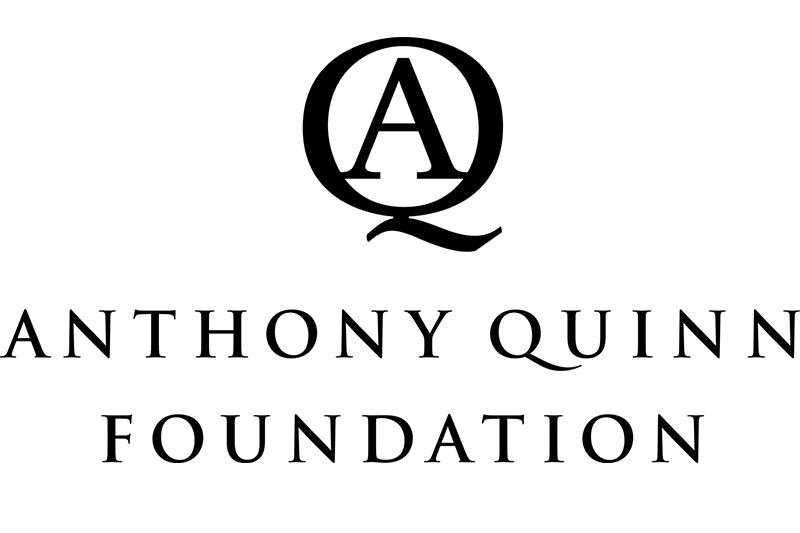In Support of School Choice
“All children in America should be able to access the best schools possible. We have a moral and societal obligation to give our children the opportunity to succeed in school, at work, and in life. We cannot meet that obligation unless parents are empowered to select the best schools of their children.” – Dr. Bill Cosby
Last week marked National School Choice Week in the U.S., a week dedicated to drawing attention to the growing School Choice movement in which parents are given the opportunity to choose the school their children attend and have that education subsidized in part by their tax dollars. Events were held across the country, and notable figures such as Dr. Bill Cosby (a good friend of the Anthony Quinn Foundation) and MSNBC political and legal analyst Michelle Bernard lent their voices and support to the cause.
Already enacted in 19 states, the School Choice program provides parents with the means to send their child(ren) to the school that best fits the child(ren)’s unique needs, rather than the school they can best afford or the school that their tax dollars will pay for. This allows children to attend private school, a charter school, a public school outside their district, or to be home schooled or attend virtual or online schooling. School Choice is made possible through school vouchers, tax-credit scholarship programs, and personal tax credits and deductions.
 Several different school voucher programs exist, each with different rules and guidelines for eligibility. Households generally need to meet certain criteria in order to receive a voucher. Once issued, these vouchers allow parents to use all or part of the tax funding set aside for their child(ren)’s education for the school of their choice.
Several different school voucher programs exist, each with different rules and guidelines for eligibility. Households generally need to meet certain criteria in order to receive a voucher. Once issued, these vouchers allow parents to use all or part of the tax funding set aside for their child(ren)’s education for the school of their choice.
Voucher programs are divided into several categories, including:
Universal Voucher Programs: All children are eligible to receive vouchers (such as in Sweden)
Means-Tested Voucher Programs: Vouchers are awarded on the basis of financial need, where families whose total household income falls below a defined number are eligible.
Failing Schools, Failing Students Voucher Programs: Children who are attending failing public schools, or who are themselves performing poorly or failing in school, are given vouchers to attend a school that their parents determine will better suit their learning needs.
Special Needs Voucher Programs: These are issued to children with documented learning disabilities or educational needs, or children who have Individualized Educational Plans (IEPs), such as children on the Autism spectrum. This allows these children to attend a school that is better-equipped to handle their unique educational, psychological, and social needs.
Pre-Kindergarten Voucher Programs: Children attending pre-K programs are eligible.
Town Tuitioning Programs: Vouchers are offered to children whose communities do not have public schools at their grade level. Usually the parents are allowed to pick the school the children will attend, but in some cases, this decision is instead made by the town.
If a family does not qualify for vouchers, then there are some other options available to them, including:
Open Enrollment: Some states now allow parents to enroll their child(ren) in the public school of their choosing, regardless of its geographic location.
Tax-credit Scholarship Programs: Students can apply for scholarships created by individuals and corporations that provide for an education at a specific private institution. The scholarship sponsors receive a tax credit for their donation, hence the name.
Personal Tax Credits and Deductions: A tax credit or deduction is provided to households for approved educational expenses, which can include private school tuition, books, supplies, tutors, and even transportation. This helps parents recoup the cost of their child(ren)’s education. These credits and deductions may be restricted by income level, however, or may restrict the total amount that can be claimed.
The Anthony Quinn Foundation has chosen to support School Choice and National School Choice Week because we believe it can play a key role in allowing gifted young students to get the best education possible, both in the arts and in their general studies. With the arts becoming less prevalent in our public schools, School Choice gives children with an interest in the arts the option to attend a school that has a solid arts program, a program that will enrich and nurture them both as artists and academics. It enables underprivileged children to attend a school where they will be exposed to the arts and gives them a new outlet for their energy and emotions, keeping them off the streets and in the classrooms. It gives so many needy and deserving children a new lease on life and helps them to realize their full potential, unencumbered by financial restraints. It also encourages schools to become more competitive and really raise the bar in terms of the programs and education they provide. Most of all, it allows the children who genuinely want to learn do just that – learn – and to do it in the manner best suited to them.
For more information on School Choice and National School Choice Week, and how you can get involved, visit:
The Friedman Foundation for Educational Choice
National School Choice Week Homepage
National School Choice Week on Facebook
National School Choice Week on Twitter
Do you have an experience with School Choice that you’d like to share? We welcome you to share your experiences and opinions in the comments section below.

